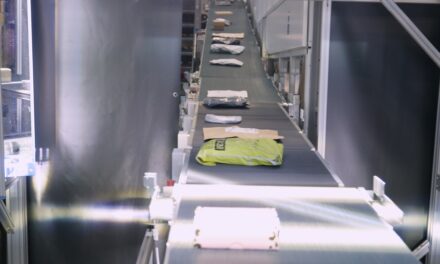
Lifeline for post offices threatened with closure
When the elderly postmistress in the Kent village of Sutton Valence decided to sell up in 1986, Gary Coyle was probably not on her list of target buyers.
Having left a tough comprehensive school in Northampton at the age of 15 without any qualifications, he became a chef and began an extraordinary journey. It took him from the Queen Eleanor hotel in Northampton to a head chef at the Mark Warner company, cooking at the exclusive ski resorts of Verbier and Meribel.
But after catering, he became attracted to the mail business when the village post office went up for sale near to the home of his in-laws. That was more than 20 years ago. He has never looked back, but many other postmasters have not found the going so easy.
As the only shop in the village, his business is thriving, but other rural post offices are not so lucky. About 2,500 are under threat of closure and Coyle is now leading a mission to save them.
He is aware that it will not be an easy task. The 14,200-strong post-office network loses about Pounds 4m a week and is propped up only by government subsidy.
Post offices that make money tend to be the larger ones in busy urban areas.
Coyle has tried a post-office initiative before, and failed – the Postmasternetwork that aimed to boost the average income of a sub-postmaster by Pounds 5,000 a year by finding new revenue streams. When he pulled the plug on the operation in January, he cleared all its debts, but lost Pounds 100,000 of his own cash in the process. That venture was backed by high-profile City figures, who prefer not to divulge their identities.
Coyle remains undeterred. He has now teamed up with Mail Boxes Etc, part of United Parcel Service (UPS), the international courier-services giant, in a plan to set up new post-office franchises under the Mail Boxes name.
Mail Boxes already has 105 post offices in the UK and Ireland but is desperate to expand. Coyle is leading the initiative on their behalf and being paid a retainer.
He will get shares in Mail Boxes for every new post office he opens.
Postmasters whose centres face closure will receive compensation packages worth about Pounds 60,000 each from the government. Coyle wants them to use about Pounds 30,000 of this to set up a franchise with Mail Boxes, for which they get a new post office, branded and kitted out with basic equipment, as well as marketing and training. The Mail Boxes post offices would offer mail services from a range of providers, including Fedex, UPS and Parcelforce (part of Royal Mail) and basic Royal Mail products.
They will also offer a foreign- currency exchange, with bill payments and money-transfer services. But the key to success would be to have services such as photocopying, business-card printing and document processing for local businesses.
They will also go one step better by not closing for lunch.
Unlike existing post offices, Mail Boxes would not offer banking services. "I am not going to replicate the Post Office because it doesn't work. To make this happen, we need good locations and an entrepreneurial postmaster," Coyle said.
He believes that, realistically, 300 post offices can be saved over five years. He is also in talks with the Association of Convenience Stores and so-called symbol retailers such as Spar, Londis and Musgrave about the possibility of opening shops next to post offices as part of an all-in-one package.
He has negotiated with Mail Boxes to offer its franchise agreement at half the usual Pounds 60,000 to Pounds 85,000 price it charges for a stand-alone shop – to help make the deal more attractive to postmasters.
"I see this as a window of opportunity," Coyle said.
He has worked hard to make the agreement with Mail Boxes happen. He previously held talks with Postnet, a US franchise company, but it wanted him to raise Pounds 2.5m and find a board of directors. He feared that could take too long and the moment would be lost.
The DTI is expected formally to announce post-office closures in the next two weeks, but Coyle knows the importance of rural post offices to local communities.
"When I started at my post office it took three or four years for me to be accepted. The previous lady had been there 32 years and sold Crimplene dresses and wool. People were very resistant, they don't like change, and the sub postmaster is an important person in a village. You get asked to open local fetes and I was on the parish council for 10 years."
Since losing money on Postmasternetwork, Coyle is determined to make this venture succeed. The margins on offer to sub-postmasters will be much higher under the Mailbox franchise than with the Post Office network, so he hopes that will provide sufficient temptation to persuade at least some people not to throw in the towel.












